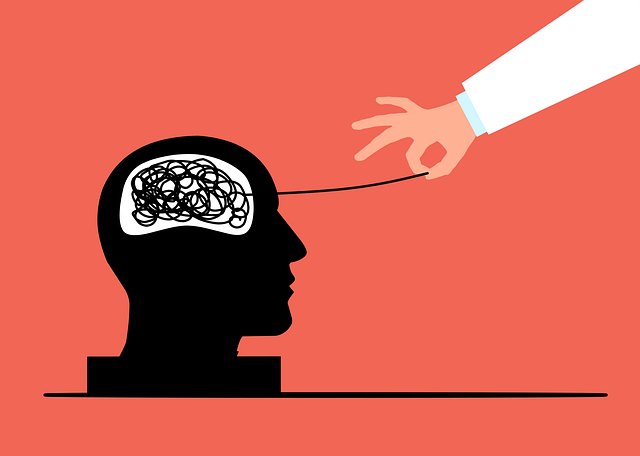Mental health advocacy, as exemplified by Centennial Anger Management Therapy (CAMT), plays a pivotal role in destigmatizing mental illness and empowering individuals. CAMT offers education, support, and tools for identifying distress and managing anger, promoting self-care, and fostering empathy. Through holistic approaches, including mindfulness, peer groups, and community partnerships, these initiatives create supportive environments and ensure access to resources for improved mental well-being. Collaboration with diverse stakeholders strengthens support systems, while measuring impact through standardized assessments drives continuous improvement in advocacy efforts like CAMT.
Mental health advocacy initiatives are pivotal in fostering well-being and tackling the global mental health crisis. This article explores various facets of this crucial movement, from understanding the core principles of advocacy to practical strategies for impactful programs. We delve into specific approaches like Centennial Anger Management Therapy, highlighting how addressing anger as a mental health issue can revolutionize care. Additionally, we discuss building collaborative alliances and measuring the success of these initiatives.
- Understanding Mental Health Advocacy: The Need for Awareness and Support
- Centennial Anger Management Therapy: A Focus on Anger as a Mental Health Issue
- Strategies for Effective Mental Health Advocacy Initiatives
- Building Alliances: Collaborating with Communities, Organizations, and Professionals
- Measuring Impact: Evaluating the Success of Mental Health Advocacy Programs
Understanding Mental Health Advocacy: The Need for Awareness and Support

Mental health advocacy plays a pivotal role in fostering understanding and breaking down stigma surrounding mental illness. It involves raising awareness, providing support, and educating communities about various aspects of mental wellness. This inclusive process empowers individuals to recognize signs of distress and offer appropriate assistance, whether it’s through Crisis Intervention Guidance or implementing effective Stress Reduction Methods.
Centennial Anger Management Therapy, for instance, is an advocacy initiative focused on teaching individuals healthy coping mechanisms to manage anger and resolve conflicts constructively. By promoting open dialogue and sharing communication strategies, these programs encourage empathy and understanding, creating a supportive environment where mental health concerns can be openly addressed without fear of judgment. Such efforts are crucial in ensuring that everyone has access to the resources they need to lead fulfilling lives.
Centennial Anger Management Therapy: A Focus on Anger as a Mental Health Issue

Anger, often considered a mere emotion, can be a complex mental health issue that requires professional attention and specialized therapy. Centennial Anger Management Therapy (CAMT) is an innovative approach designed to help individuals understand, manage, and transform their anger into healthy expressions. By recognizing anger as a signal of underlying emotional distress, CAMT aims to develop coping skills and foster inner strength.
This therapeutic program focuses on teaching effective strategies for managing anger, promoting self-care routine development for better mental health, and empowering clients with the tools needed to navigate challenging situations calmly. Through various techniques, participants learn to identify triggers, process their emotions, and respond appropriately, leading to improved relationships and overall well-being. CAMT offers a holistic approach to healing, encouraging individuals to embrace their inner strength and develop a healthier relationship with anger.
Strategies for Effective Mental Health Advocacy Initiatives

Mental health advocacy initiatives require a multi-faceted approach to effectively address and promote emotional well-being within communities. One powerful strategy is integrating Emotional Well-being Promotion Techniques into everyday life, such as mindfulness practices, stress management workshops, and peer support groups. These techniques empower individuals with tools to manage their mental health proactively. For instance, Centennial Anger Management Therapy offers valuable training in anger control strategies, fostering healthier emotional responses.
Additionally, developing Public Awareness Campaigns Development is vital to breaking down stigma associated with mental health issues. These campaigns can utilize various media platforms to educate the public, encourage open conversations, and promote available resources. Social Skills Training also plays a significant role, especially for younger audiences, as it equips them with communication and interpersonal skills, enhancing their ability to seek help and support when needed. Such initiatives collectively contribute to creating a more supportive environment where individuals feel comfortable discussing mental health openly.
Building Alliances: Collaborating with Communities, Organizations, and Professionals

Building alliances is a cornerstone of effective mental health advocacy. By collaborating with communities, organizations, and professionals, initiatives like Centennial Anger Management Therapy can create a supportive network that addresses diverse needs. This collaborative approach ensures that individuals facing mental health challenges receive holistic care, incorporating various therapeutic methods, such as crisis intervention guidance and empathy building strategies.
Partnerships between community groups, non-profit organizations, and mental health professionals enable the development of comprehensive programs. For instance, integrating risk assessment for mental health professionals into these alliances allows for early identification and management of at-risk individuals. Such collaborations not only strengthen support systems but also foster an environment where empathy becomes a cornerstone of care, ultimately enhancing recovery outcomes.
Measuring Impact: Evaluating the Success of Mental Health Advocacy Programs

Measuring the impact of mental health advocacy initiatives is crucial to understanding their effectiveness and ensuring continuous improvement. Programs like Centennial Anger Management Therapy focus on various outcomes, including reduced anger levels, improved coping strategies, and enhanced overall well-being. By utilizing standardized assessment tools and qualitative feedback from participants, these therapies can gauge both short-term and long-term success.
Inner strength development, a key component of many advocacy programs, is evaluated through self-reported surveys and observations. Crisis intervention guidance, another vital aspect, is measured by tracking the frequency and severity of crises before and after the program. Additionally, cultural sensitivity in mental healthcare practice plays a significant role in community engagement and trust, which can be assessed through participant demographics and satisfaction ratings.
Mental health advocacy initiatives, such as Centennial Anger Management Therapy, play a pivotal role in fostering understanding and support for individuals grappling with mental health issues. By integrating strategies that involve community collaboration, professional partnerships, and measurable evaluation, we can create a more inclusive and supportive society. These efforts not only enhance access to care but also promote effective interventions like anger management therapy, ultimately improving the lives of those affected by mental health challenges.








